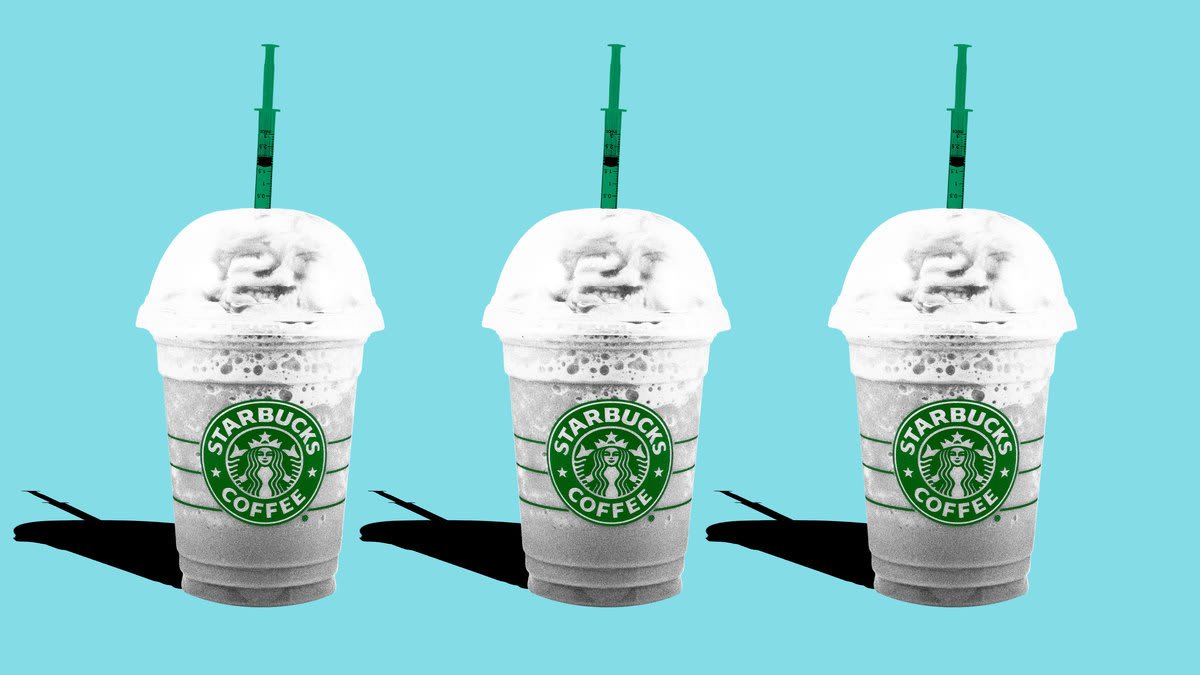Last week, the U.S. Supreme Court blocked the Biden administration from forcing large employers to mandate vaccination or testing for employees, an irrational and deadly decision that will likely prove ruinous for American workers.
But not only did the justices rob millions of people of the right to a safe workplace, they provided cover for CEOs to relax worker health and safety rules. On Tuesday, the largest coffee company on the planet gave us a grim preview of what could prove a deadly race to the bottom powered by fear and political consequences.
After the court’s ruling, it was predictable that many companies that had taken steps to comply with the federal rule would stop requiring vaccination of employees. As was widely reported Wednesday, Starbucks was among the first out of the gate. Chief Operating Officer John Culver sent a sterile memo to all employees announcing the move. He didn’t use these words, but effectively made it clear that baristas and other employees now have to go to work in crowded cafés and take their chances with COVID-19.
Meanwhile, we can be sure that most Starbucks white-collar executives are fully vaccinated, and rarely—if ever—put in position to face unvaccinated customers just to earn a living.
But the Seattle coffee giant was not just making it more difficult for hardworking employees. It was also being at least somewhat dishonest about it. Culver said he was simply responding to the Supreme Court’s edict. “We respect the court’s ruling and will comply,” he wrote.
Really? The court’s ruling applied only to the Occupational Safety and Health Administration (OSHA), the agency that issued the rule, and the Biden administration. It said nothing about private businesses. Corporations like Starbucks have long had the full legal authority to require health and safety standards for all employees, including testing, masking, and vaccinations—and they should.
The Supreme Court itself had earlier ruled that Indiana University could require vaccines for all its faculty, staff, and students. Many lower courts have also upheld private mandates, and a multitude of businesses from United Airlines to Goldman Sachs have successfully implemented vaccine requirements. Some companies, like McDonald’s, have only done so for office workers, rather than frontline employees; others, like Amtrak, have pulled back from strict mandates amid concerns about labor shortages. But mandates not only keep workers and customers safer—they are also good for the company’s bottom line. A vaccinated workforce has far less absenteeism and far more productivity than if employees remained unvaccinated. A vaccinated workforce means less transmission in retail establishments, factories, and shop floors—and fewer hospitalizations and deaths.
The U.S. Equal Employment Opportunity Commission (EEOC) has issued clear guidance that employers may require tests, masks, and vaccinations as a reasonable condition of employment. EEOC’s guidance was later reinforced by the U.S. Department of Justice, which issued a legal opinion affirming mandatory vaccinations. The DOJ legal counsel memo, it is worth noting, found that it was lawful for businesses to require vaccines under Emergency Use Authorization. But at least one of the primary vaccines used today—the one from Pfizer—now has full FDA approval. It’s long been crystal clear that businesses are legally permitted to mandate COVID-19 vaccinations, provided they grant reasonable religious and disability-based accommodations.
You might want to give Starbucks’ management a break; maybe they didn’t realize that the Supreme Court’s decision didn’t prevent a company like Starbucks from doing the right thing? But surely when a decision is reached of this magnitude, affecting employees’ right to a safe workplace, corporate management would first check with its legal office. Every legal counsel in corporate America and universities knows that they have the clear power to require vaccinations. The point is, if Starbucks wanted to make this decision not to require vaccines, it’s their right to do so. But don’t disingenuously hide behind a lame excuse that amounts to: The Supreme Court made me do it.
A very helpful Starbucks spokesperson told me Wednesday that the company referred to the OSHA rule in its original Jan. 4 memo requiring vaccinations. That’s true. But in that same memo, Culver said it’s the responsibility of Starbucks’ leadership “to do whatever we can to help keep you safe and create the safest work environment possible.”
By that standard, only a fully vaccinated workforce will do the job.
Starbucks has cultivated a brand as a progressive and socially responsible organization. And Starbucks has done some great things. It encourages all its employees to get vaccinated and boosted, and pays for time off to get a shot. It also pays for sick leave if there are any vaccine adverse effects. And just recently, it updated its mask guidance to encourage surgical-quality masks or better. That is the right thing to do.
But the truth is that if everyone is vaccinated, then everyone is safer, especially if they are vulnerable.
I believe the company when it says it wants to keep everyone healthy. But it is troubling that this massive brand could set the wrong tone for corporate America. I worry other companies—companies that may play to a narrower audience, or be confined to conservative customer bases in right-wing locales—will watch what Starbucks did, and see the way it used the Supreme Court as political cover.
Make no mistake: As a result of its decision to withdraw the vaccine mandate, many Starbucks employees and customers will get infected while serving, or drinking, a cup of coffee. They may then go home to a vulnerable parent or child. Some will get very sick, become hospitalized, or even die.
Starbucks may want its customers to believe it’s just following the law, but the reality is much more concerning. It is harming its workers and customers, and inviting other businesses to do the same.





